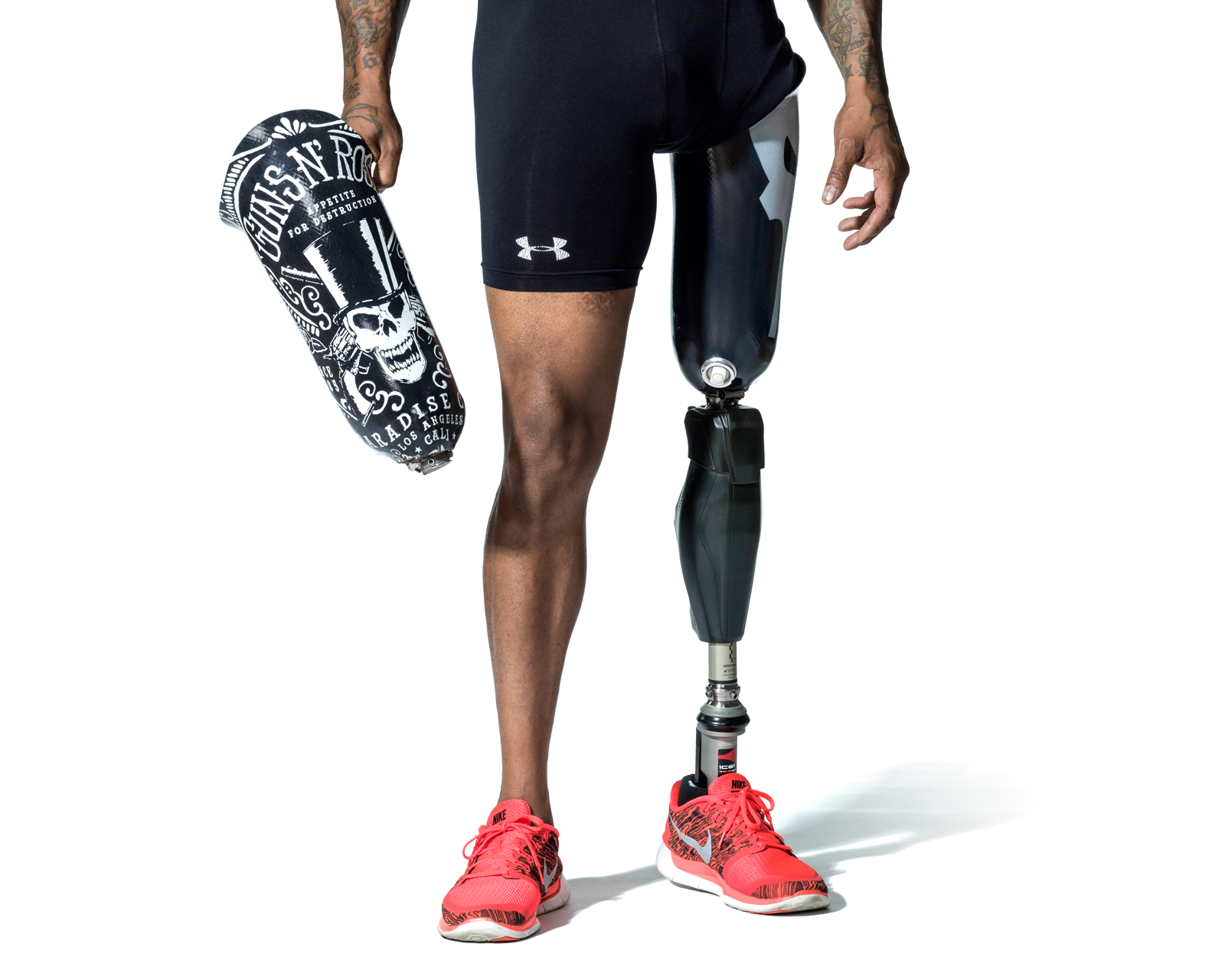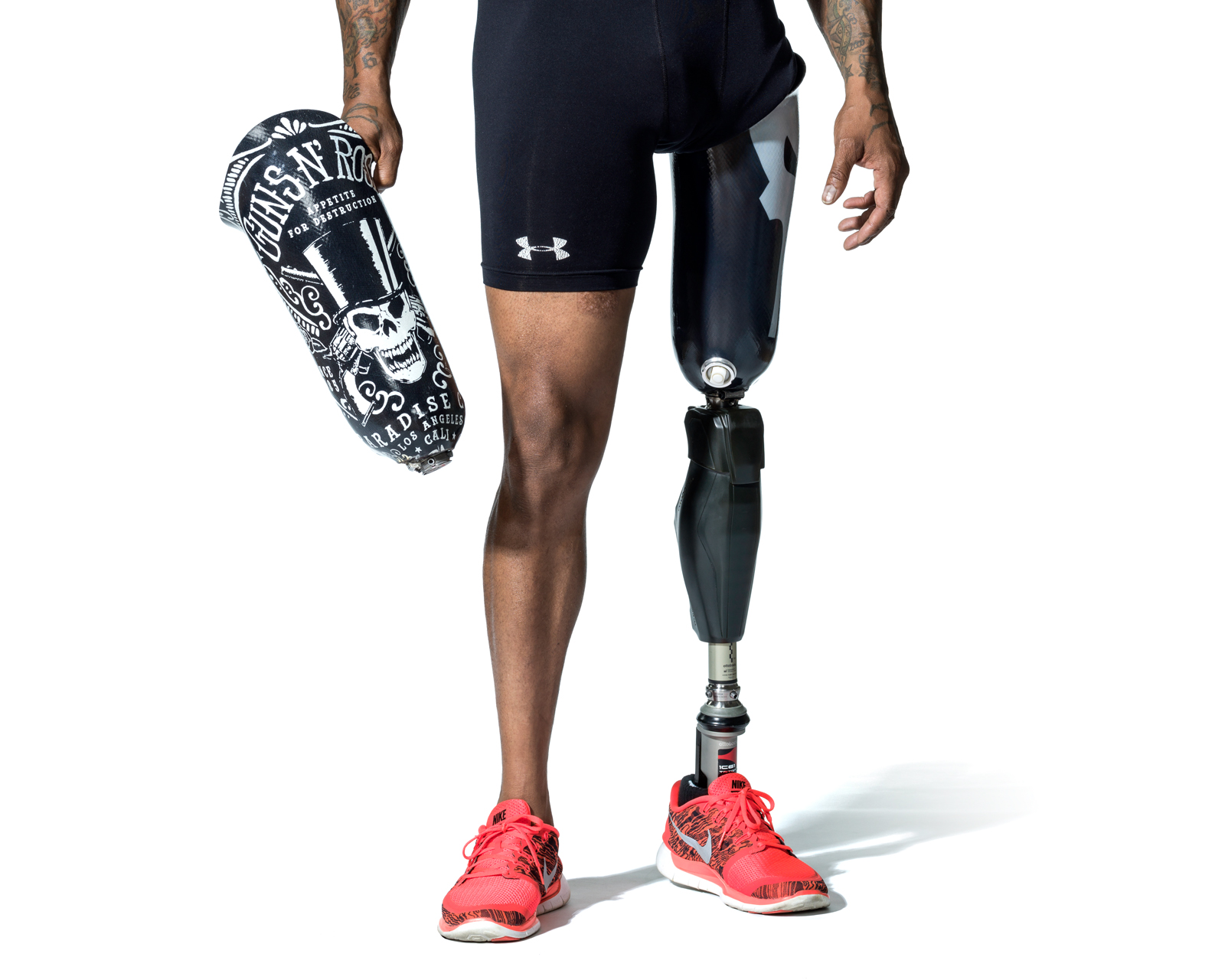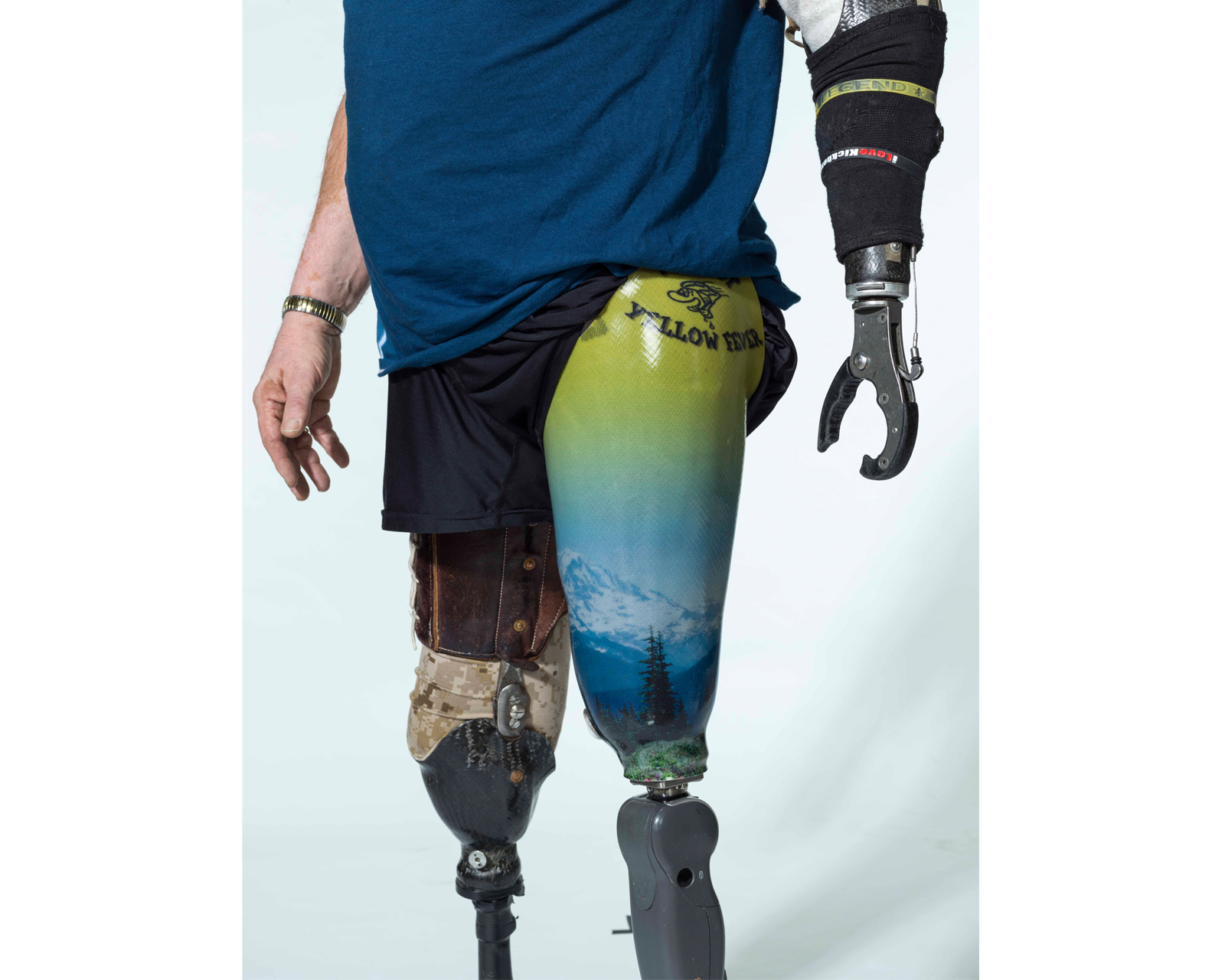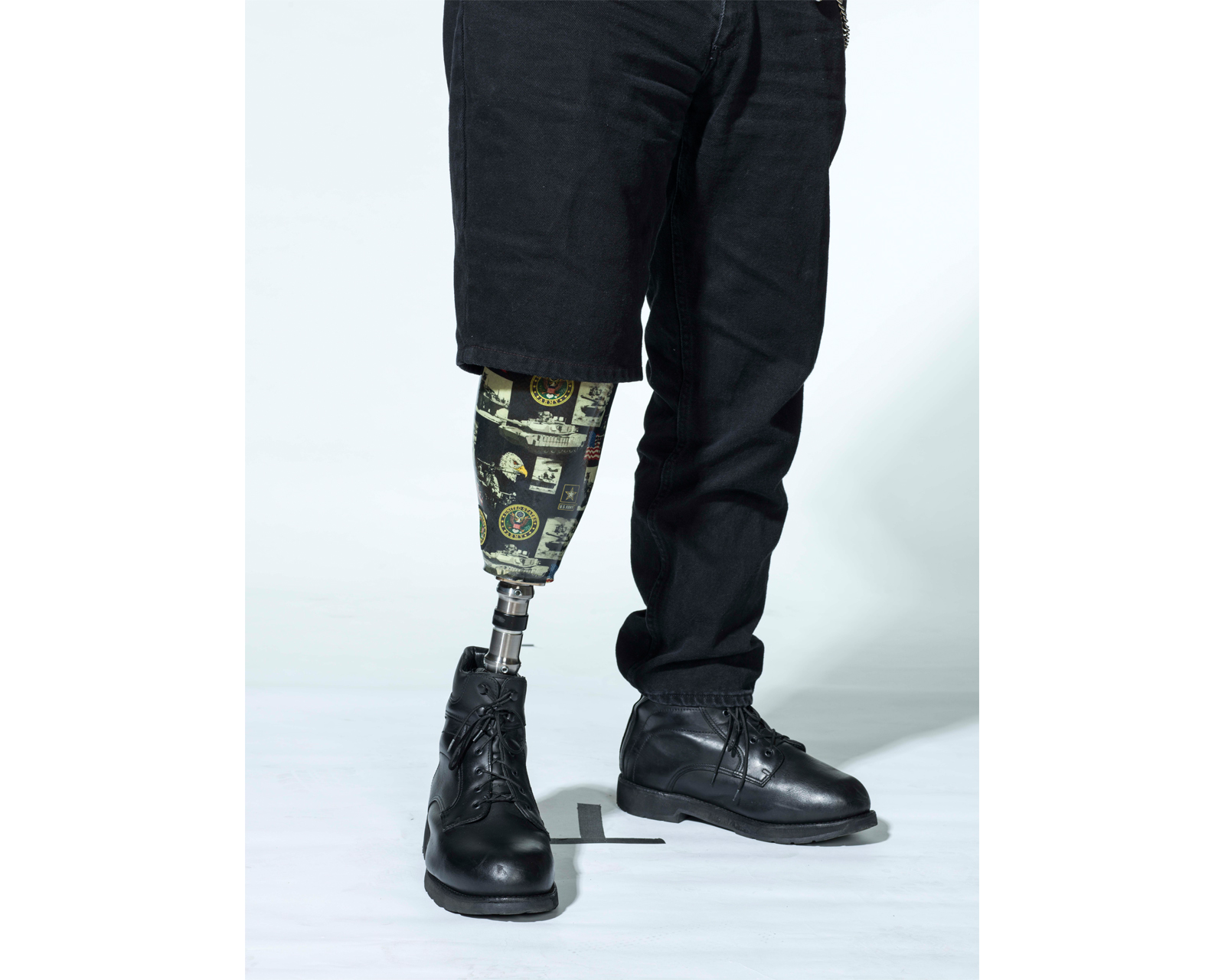The Local newsletter is your free, daily guide to life in Colorado. For locals, by locals.
Nearly 2,000 American service members have lost arms, legs, hands, and feet in our 16-year-long conflict in Iraq and Afghanistan. But unlike many of the 15,000 veterans who lost limbs in World War II or the 6,000 amputees from Vietnam, today’s veterans aren’t afraid to show off their prostheses. “In earlier times, veterans would hide them,” says Lea Lew, a certified prosthetist/orthotist who oversees the Veterans Affairs’ Jewell Clinic in Aurora, one of only seven regional amputation centers in the country. “Now it’s almost a point of pride.”
Jewell Clinic’s prosthetics lab has a unique role in showcasing that pride: It customizes, on-site, the design of a prosthetic’s socket—the element most essential to stabilizing the prosthetic, ensuring comfort, and preventing infection and other injuries. Staffers make between 20 and 30 sockets each month, and they’ve decked them out in everything from full Steeler regalia to Guns N’ Roses imagery (pictured). “I don’t think people realize how far they go out of their way to help us,” says Gary Watson, 62, a U.S. Army veteran who’s had several sockets made in the past year. “The limit is your imagination.”
Help For Vets: Learn more about the clinic’s rehab facilities—including gait analysis and speech pathology labs, visual impairment resources, and nutritional consulting—by checking out the Limb Loss Summit in April, which is hosted at the Jewell Clinic and open to the public.












